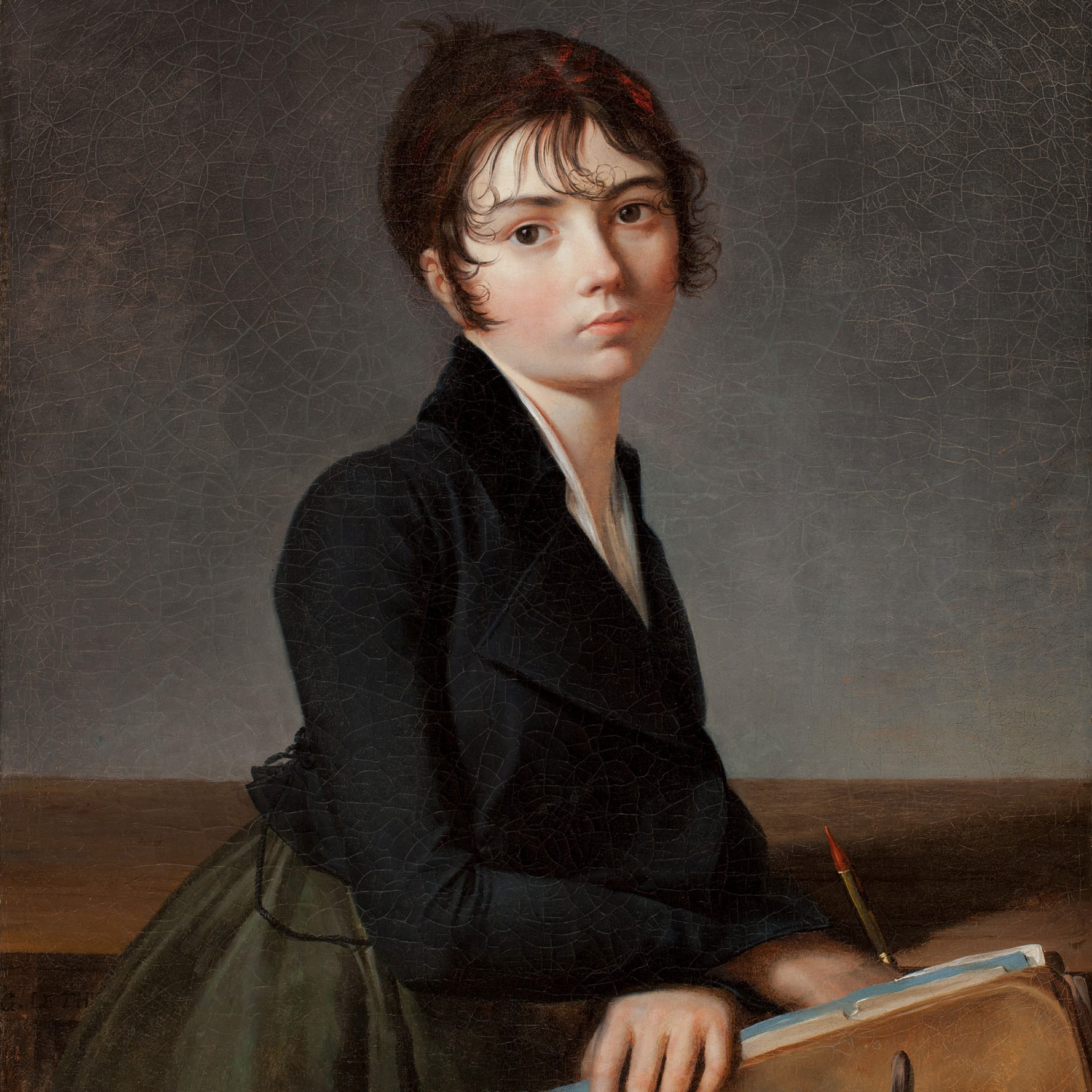Guillaume Lethière
June 15, 2024–October 14, 2024

Guillaume Lethière
Woman Leaning on a Portfolio
c. 1799, oil on canvas. Worcester Art Museum, Massachusetts, museum purchase, 1954.21. Photo: Bridgeman Images
Born in Sainte-Anne, Guadeloupe, Guillaume Lethière (1760–1832) was a key figure in French painting during the late eighteenth and early nineteenth centuries. The son of a white plantation owner and an enslaved woman of mixed race, Lethière moved to France with his father at age fourteen. He trained as an artist and successfully navigated the tumult of the French Revolution and its aftermath to achieve the highest levels of recognition in his time. A favorite artist of Napoleon’s brother Lucien Bonaparte, Lethière served as director of the Académie de France in Rome, as a member of the Institut de France, and as a professor at the École des Beaux-Arts. A well-respected teacher, he operated a robust studio that rivaled those of his most successful contemporaries. Despite his remarkable accomplishments and considerable body of work, Lethière is not well known today. The exhibition, organized in partnership with the Musée du Louvre and featuring some one hundred paintings, prints, and drawings, celebrates Lethière’s extraordinary career and sheds new light on the presence and reception of Caribbean artists in France during his lifetime.
After its presentation at the Clark, the exhibition will travel to the Musée du Louvre in Paris and will be on view there from November 13, 2024–February 17, 2025.
Guillaume Lethière is co-organized by the Clark Art Institute, Williamstown, Massachusetts, and the Musée du Louvre, Paris, and curated by Esther Bell, deputy director and Robert and Martha Berman Lipp Chief Curator; and Olivier Meslay, Hardymon Director; with the assistance of Sophie Kerwin, curatorial assistant, at the Clark; and by Marie-Pierre Salé, chief curator in the Department of Drawings at the Louvre.
Guillaume Lethière is made possible by Denise Littlefield Sobel and the Mellon Foundation. Major funding is provided by Ford Foundation and the National Endowment for the Humanities: Democracy Demands Wisdom; with additional support from Charles Butt, the Samuel H. Kress Foundation, the Robert Lehman Foundation, and the Terra Foundation for American Art.
Any views, findings, conclusions, or recommendations expressed in this exhibition and its accompanying materials do not necessarily represent those of the National Endowment for the Humanities.

